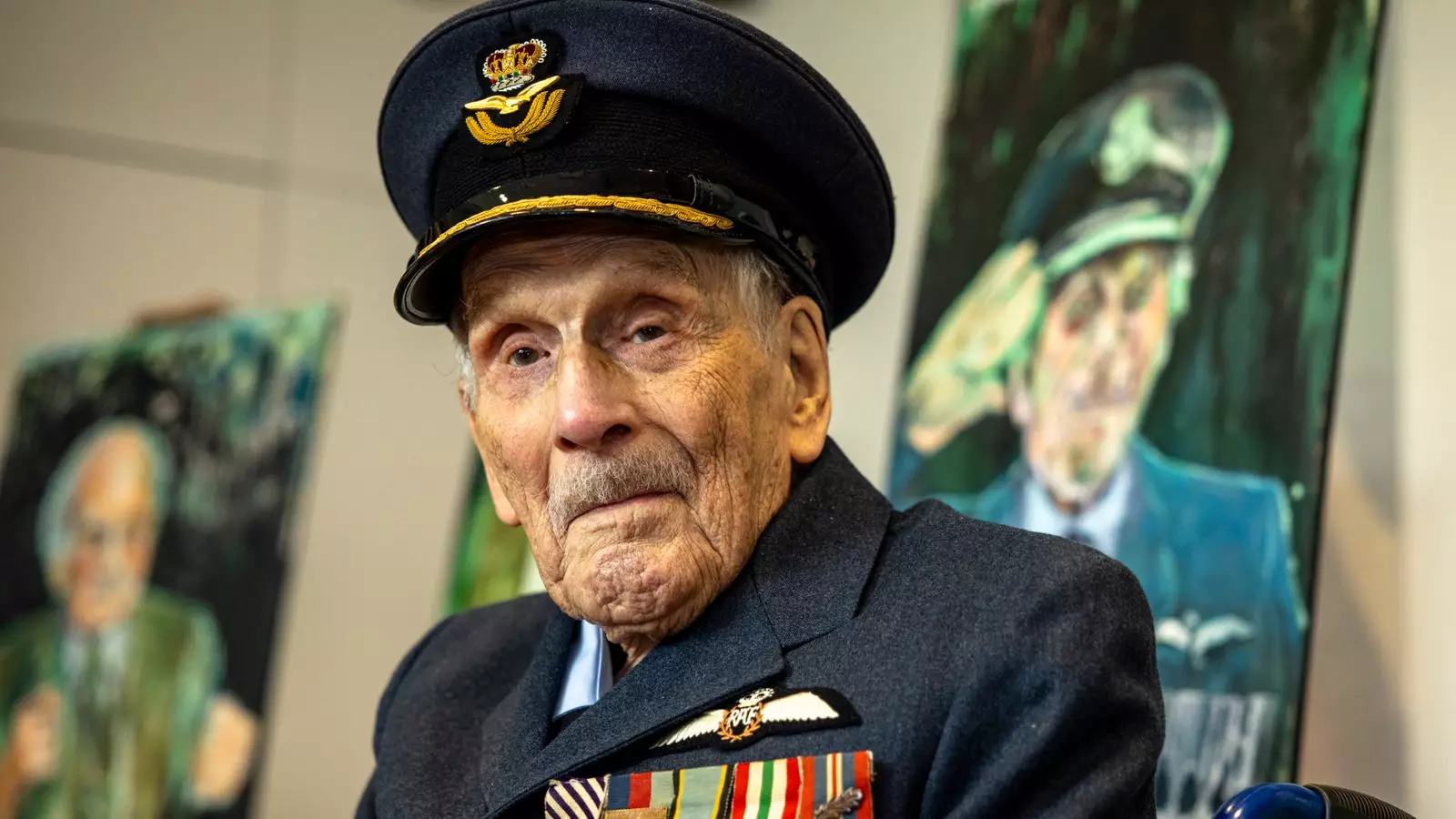The recent passing of John ‘Paddy’ Hemingway at the remarkable age of 105 marks the end of an era, not merely for his family or friends, but for a nation that has cherished and revered the legacies of valor from the Battle of Britain. This pivotal moment during World War II stands not just as a chapter in history books, but as a living testament to human resilience and grit. The RAF’s tribute to Hemingway, citing his remarkable exploits during this critical period, evokes a deep sense of nostalgia intertwined with national pride. However, it also serves as a sobering reminder that the memories of those who defended freedom are fading, compelling us to reflect on the lessons embedded in their lives and sacrifices.
The Power of Stories
Hemingway’s narrative is steeped in heroism but colored with humility. He never considered himself anything extraordinary, merely doing the job he was trained for. This perspective is crucial, for it allows us to appreciate the immense burdens carried by those who willingly put their lives on the line for a greater good. In an age where sensationalism often overshadows genuine heroism, Hemingway’s quiet demeanor juxtaposes sharply with the “celebritization” of modern warfare. His story transcends mere historical significance—it’s an exploration of the human spirit, a powerful reminder that valor often wears an unassuming face.
In an age dominated by social media and a 24-hour news cycle, the narratives of real heroes like Hemingway become even more valuable. His accounts of aerial dogfights and survival in enemy territory resonate with those yearning for authenticity and purpose in a world filled with distractions. The real fight—existential as it may seem—has always been about preserving humanity and dignity. While newer generations grapple with their own challenges, Hemingway’s life encapsulates the timeless struggle for freedom, reminding us of the virtues that we owe to those who came before us.
Debunking the Myths
The romanticized image of war often lacks realism, and Hemingway’s distinct narrative challenges these notions. Biographies and historical figures can easily become overly idealized, morphing into heroic archetypes devoid of the terrors and flaws that are part and parcel of human experience. The bravery exhibited by Hemingway was rooted in reality—he faced not only enemy aircraft but also the tremendous personal cost of each mission he undertook. As the UK reflects on his contributions, it becomes vital to understand the full spectrum of his experiences. His injuries, harrowing escapes, and the mental toll of service compel an honest conversation about the dual-edged sword of heroism and sacrifice.
Though the RAF and dignitaries laud Hemingway’s bravery, a critical component is often missing—the voices of those affected by war. While we honor such figures, it would be myopic to overlook the civilian casualties, the families torn apart, and the enduring scars left on the psyche of entire nations. War stories should encapsulate these complexities to ensure that we remember the full human cost rather than just the valiant highlights.
An Evolving Legacy
Prime Minister Sir Keir Starmer’s acknowledgment of Hemingway’s passing encapsulates a broader sentiment that resonates across generations. The commendations are statistically significant, but the real work lies in understanding the legacy that remains. As younger generations inherit the world built on the freedoms defended by men like Hemingway, the responsibility now falls on them to cultivate those values of courage and integrity. The knowledge that such tenacity exists as part of their heritage is a powerful motivator in addressing contemporary issues—from climate change to social inequities.
While Hemingway’s accomplishments symbolize a bygone age of heroism, they also illuminate the path forward. The context of his lifetime was fraught with complexities that continue to echo in modern politics and society. Therefore, as we mourn the loss of such a profound figure, we must channel that energy into shaping a world that reflects the ideals he defended: freedom, resilience, and unwavering courage in the face of adversity. The lessons from his life urge us not just to honor the past but to forge a brighter future where these principles remain at the forefront of our collective consciousness.


Leave a Reply